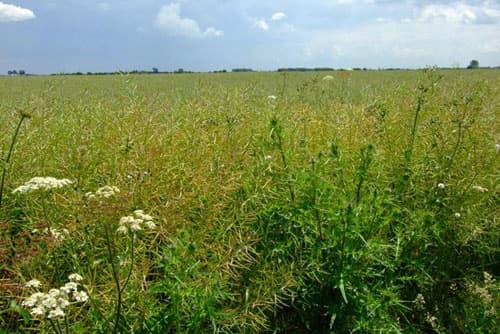Alternative Energy Source: Biomass Energy
Biomass energy is a form of renewable energy that is made from living materials. This includes a wide range of organic materials, such as plant and animal waste, wood, and agricultural residues. Biomass can be used to produce electricity, heat, and transportation fuels, offering a versatile and sustainable energy solution. The process of converting biomass into energy involves biological or thermochemical methods, such as combustion, gasification, and anaerobic digestion. These methods release the stored chemical energy in biomass, which can then be harnessed to meet various energy needs.
One of the primary benefits of biomass energy is its carbon neutrality. While the combustion of biomass releases carbon dioxide (CO2) into the atmosphere, this CO2 is largely offset by the carbon absorbed by plants during their growth. This cycle helps to maintain a balance in atmospheric CO2 levels, unlike fossil fuels, which release carbon that has been stored underground for millions of years. By utilizing biomass, we can reduce our reliance on fossil fuels and mitigate the impact of climate change.
Furthermore, biomass energy supports waste management and agricultural practices. By converting agricultural residues, manure, and other organic waste into energy, we can reduce landfill use and methane emissions. Methane is a potent greenhouse gas, and its reduction is crucial for addressing climate change. Additionally, using biomass for energy can provide a valuable revenue stream for farmers and rural communities, promoting economic development and sustainability.
Despite its advantages, biomass energy also faces challenges. The collection, transportation, and processing of biomass materials can be resource-intensive and costly. Ensuring a consistent and sustainable supply of biomass is critical to the success of biomass energy projects. Additionally, there are concerns about the environmental impact of large-scale biomass production, such as deforestation and loss of biodiversity. To address these issues, it is essential to implement sustainable biomass sourcing practices and develop efficient technologies for biomass conversion.
In conclusion, biomass energy represents a promising and versatile renewable energy source. Its potential to reduce greenhouse gas emissions, support waste management, and promote rural development makes it an attractive option for a sustainable energy future. However, careful consideration and management of its environmental and economic impacts are necessary to fully realize its benefits. With continued research and innovation, biomass energy can play a significant role in the global transition to cleaner and more sustainable energy systems.
Several Different Methods
This by-product can then be used as an energy source which can directly be used to generate electricity.
Another option for biomass is converting it into biofuel which can then be used as a natural energy source that is healthier for the environment.
This makes it a great option for those worried about the current levels of greenhouse gases and their effects on the environment.
Biofuel
Biofuel is a direct by-product of biomass and can readily be created with biomass conversion techniques.
In recent years, biofuel has been the target of much criticism due to the fact that some forms of biofuel, particularly corn ethanol, are not as environmentally friendly as once thought.
Nonetheless, new forms of biofuel such as cellulosic ethanol offer a lot of benefits and can play a vital role in future climate change mitigation.

How Biomass is Made
Biomass is created from living organisms such as corn, sugarcane, hemp, switch grass and quite a few varieties of trees making it a renewable energy source that is underutilized.
- Paper Waste: One of the largest contributors to the making of biomass is waste that is created when paper is produced. This waste is referred to as black waste and can readily be converted to biomass.
- Municipal Solid Waste: Another common place where biomass can be created is from municipal solid waste. Municipal waste can be used and converted to biomass and will always be readily available in the world in which we live in.
- Vegetable and Animal Fats: Another form of biomass that can be converted to biodiesel is the vegetable oil and animal fats that are often left over from fast food restaurant consumption. This biodiesel fuel is commonly converted into ethanol which is a common additive in gasoline.

Advantages
One of the main benefits of biomass is that it is renewable due to the fact that trees and crops can be regrown, making it a viable option that is environmentally friendly.
A good example of biomass is wood. When wood is burned in a fire pit or fireplace it then releases gases which produce heat, thereby heating the home. In an industrial setting these gases can be contained to make electricity.

Helps Reduce Emissions
With the growing concern of greenhouse gas emissions and the environment, converting our energy sources to biomass and its derivatives is a great way to help decrease our carbon footprint.
If all of the garbage produced in America alone were to be converted into biomass fuels, it could have a large impact on the environment.

Great Potential for Biomass Energy
This underutilized resource offers great potential that is becoming more and more popular these days because of the increased concern for the environment due to the high levels of greenhouse gases in the atmosphere and the rise in temperatures worldwide.
In any event, biomass energy provides a means of reducing our ecological footprint and will help us reduce the effects of climate change.
ChatGPT was used to help create this article
Further Reading and Sources
- Home
- Alternative Energy
- Biomass Energy
Join the Community and Newsletter (4500 Subscribers)
You can subscribe to my Substack Page or see the archives of previous posts. More great content coming soon!
Recent Articles
-
Quotes on Climate Change
Nov 24, 25 07:29 PM
Here is a list of quotes on climate change divided into different categories, many of which include people you have previously heard of. -
Climate Change Guide
May 09, 25 08:36 PM
The Climate Change Guide is your guide to a more sustainable future, and will provide you with all relevant information on mankind's greatest challenge. -
Laurent Cousineau
May 09, 25 08:23 PM
Here is information about the founder of the website Climate Change Guide, Laurent Cousineau. He created it in August 2011. -
Climate Change Quotes by Scientists Around the World
Aug 24, 24 02:01 PM
Explore impactful climate change quotes by scientists. Discover the wisdom and insights of experts advocating for a sustainable future.





